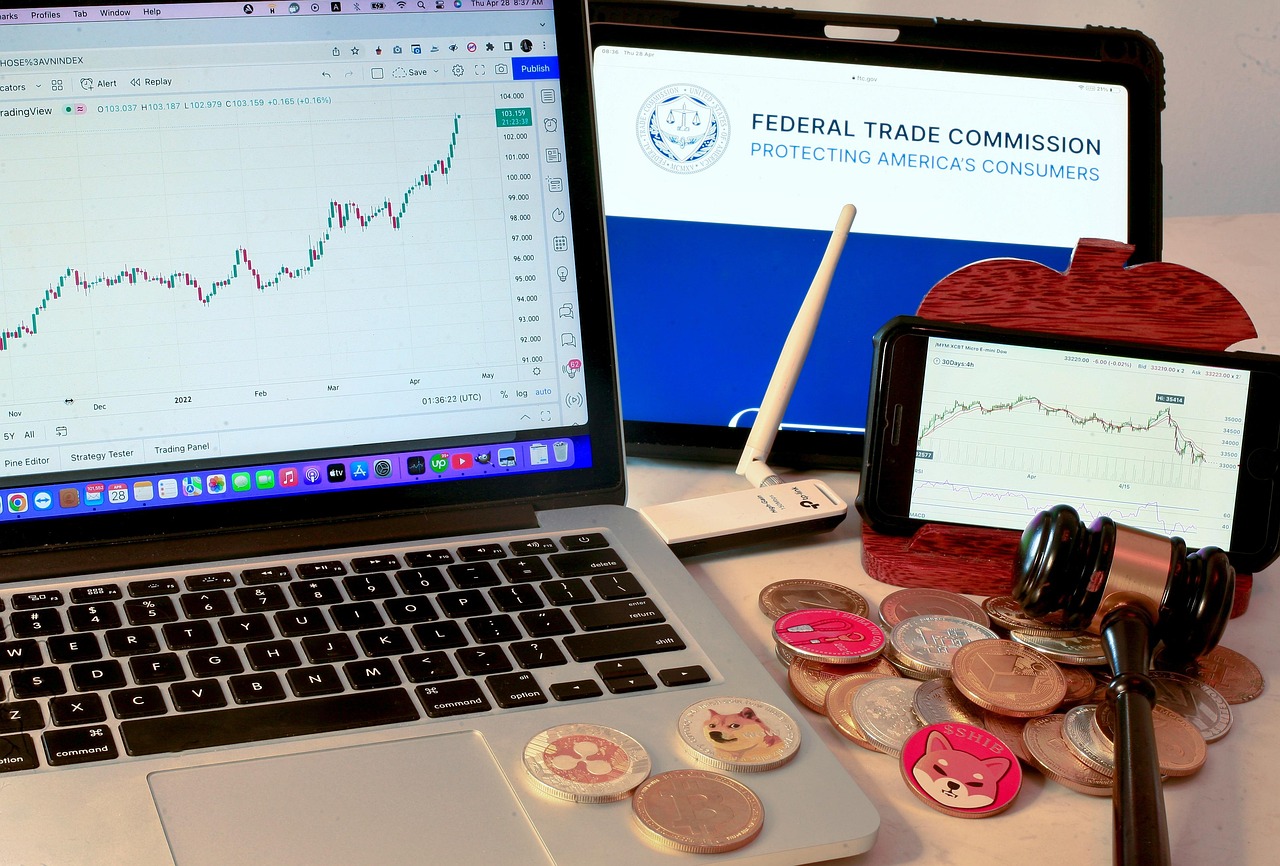Cryptocurrency exchanges are digital platforms that facilitate the buying, selling, and trading of cryptocurrencies. They serve as the gateway for users to enter the crypto market, offering various features and services. Understanding the differences between centralized and decentralized crypto exchanges is crucial for making informed decisions about where and how to trade your digital assets.
In recent years, decentralized crypto exchanges (DEXs) have gained significant popularity due to their promise of enhanced privacy, control, and reduced risk of centralized failures. However, centralized exchanges (CEXs) continue to dominate the market, offering high liquidity, user-friendly interfaces, and a wide range of services.
What is a Centralized Crypto Exchanges (CEX)?
A Centralized Exchange (CEX) is a platform where a central authority manages the exchange operations, including order matching, custody of funds, and user accounts. Users deposit their funds into the exchange’s wallets, and the platform takes responsibility for executing trades and maintaining the order book.
Key Characteristics of CEXs:
- Custodial Services: The exchange holds users’ funds and private keys.
- Order Book Model: Trades are executed based on an order book maintained by the platform.
- User Accounts: Users create accounts with personal information and undergo identity verification (KYC).
- High Liquidity: CEXs often have higher trading volumes, leading to better liquidity.
Popular Centralized Exchanges:
- Binance: As of July 2025, Binance held a 39.8% market share in spot trading volume, amounting to $698.3 billion.
- MEXC: Ranked second with an 8.6% market share and $150.4 billion in trading volume.
- Gate.io: Held a 7.8% market share with $137.2 billion in trading volume.
Pros and Cons of CEXs:
Pros:
- High liquidity and trading volume.
- User-friendly interfaces suitable for beginners.
- Access to a wide range of trading pairs and services.
- Faster transaction speeds compared to DEXs.
Cons:
- Users do not have control over their private keys.
- Centralized control makes them attractive targets for hackers.
- Regulatory scrutiny and potential for account freezes.
- Users must trust the platform’s security measures.
What is a Decentralized Crypto Exchanges (DEX)?
A Decentralized Exchange (DEX) operates without a central authority, allowing users to trade directly with one another through smart contracts. DEXs enable peer-to-peer trading, where users retain control over their funds and private keys at all times.
Core Features of DEXs:
- Non-Custodial: Users maintain control over their private keys and funds.
- Smart Contract-Based: Trades are executed automatically through smart contracts.
- No KYC Requirements: Many DEXs do not require identity verification.
- Peer-to-Peer Trading: Users trade directly with each other without intermediaries.
Popular Decentralized Exchanges:
- Uniswap: A leading DEX on the Ethereum blockchain, known for its automated market-making protocol.
- PancakeSwap: A DEX on the Binance Smart Chain, offering lower transaction fees.
- dYdX: A decentralized platform specializing in derivatives and margin trading.
Pros and Cons of DEXs
Decentralized exchanges (DEXs) have many benefits, such as higher security because users keep control of their funds, higher privacy because users only have to give out minimal personal information, and access to a large number of tokens, including new or niche coins. They also offer clear trade through smart contracts based on blockchain and usually have lower fees than centralized exchanges.
DEXs do have some problems, though. Liquidity can be low, which can make it harder to make large trades; user interfaces may not be easy for beginners to understand; and there isn’t a lot of customer help if problems arise. Also, to use them safely, you usually need to know a lot about wallets and blockchain transfers.
Advantages of decentralized crypto exchanges
Decentralized crypto exchanges (DEXs) are great for buyers who want to be in charge and feel safe. Users keep control of their money, which lowers the risk of hacks or problems with the site. DEXs give you more privacy because they usually don’t ask for much or any personal information. They also give you access to a lot of tokens, even new or obscure cryptocurrency. On the blockchain, transactions are carried out by clear smart contracts that make sure everything is fair. Also, fees are usually lower than on controlled platforms. Because of these things, DEXs are a good choice for people who value privacy, security, and independence.
Key Differences Between Centralized and Decentralized Exchanges
The way that decentralized exchanges (DEXs) and controlled exchanges (CEXs) work and handle user funds is very different. CEXs hold users’ assets and offer high liquidity, user-friendly platforms, and customer support. This makes them perfect for both new traders and traders who do a lot of business. DEXs, on the other hand, let users trade directly from their wallets. They offer more privacy, control, and openness through blockchain-based smart contracts, but they usually have less liquidity and a higher learning curve. Which one to use relies on your needs and wants, like safety, ease of use, token access, and trading experience.
| Feature | Centralized Exchange (CEX) | Decentralized Exchange (DEX) |
|---|---|---|
| Control of Funds | Exchange holds funds | Users retain control |
| Order Matching | Centralized order book | Peer-to-peer via smart contracts |
| KYC Requirements | Typically required | Often not required |
| Liquidity | High | Lower |
| User Experience | User-friendly | Can be complex |
| Security Risks | Exchange hacks, phishing | Smart contract vulnerabilities |
| Regulatory Oversight | Subject to regulations | Less regulated |
Should I use a decentralized or centralized exchange?
It depends on your needs and level of knowledge whether you want to use a decentralized (DEX) or centralized exchange (CEX). A controlled exchange might be better for you if you want ease of use, high liquidity, customer service, and easy-to-understand interfaces. Otherwise, a decentralized exchange is the better choice if you care more about safety, privacy, power over your funds, and having access to many tokens. A lot of skilled traders keep their long-term holdings in a personal wallet or DEX and use a CEX for quick trades or to convert crypto to cash. Being aware of the pros and cons of each can assist you in making more informed and safer buying choices.
Security Risks in CEXs vs. DEXs
Centralized Exchange Risks:
- Hacks: CEXs are prime targets for cyberattacks due to the large amounts of funds they hold. Notable incidents include the 2023 hack of Japanese exchange DMM Bitcoin, resulting in a loss of $305 million.
- Phishing Attacks: Users may fall victim to phishing schemes that mimic legitimate exchanges to steal login credentials.
- Platform Failures: Operational issues or mismanagement can lead to platform downtime or loss of funds.
Decentralized Exchange Risks:
- Smart Contract Vulnerabilities: Bugs or exploits in smart contracts can lead to loss of funds. For example, the 2022 hack of Mango Markets exploited a price manipulation vulnerability.
- Rug Pulls: Developers may abandon a project after attracting investments, leaving users with worthless tokens.
- Lower Liquidity: Limited liquidity can result in slippage and less favorable trading conditions.
Key Advantages of Using Decentralized Crypto Exchanges
Decentralized cryptocurrency exchanges, or DEXs, have a lot of benefits for users who want more safety and control over their assets. DEXs don’t have organized platforms; instead, users can trade directly from their wallets. This lowers the risk of hacks and platform failure. Because registration and know your customer (KYC) methods are often minimal or not required, they offer more privacy. On top of that, DEXs support a lot of different tokens, even new or niche cryptocurrencies that might not be on centralized platforms. Users also get more freedom because deals are recorded in real time by smart contracts on the blockchain, and fees are usually lower than on traditional exchanges.
Security Risks in Decentralized Crypto Exchanges and How to Mitigate Them
| Security Risk | Description | Mitigation |
|---|---|---|
| Smart Contract Vulnerabilities | Bugs or flaws in smart contracts can be exploited by hackers. | Use audited contracts, check security reports, avoid new untested DEXs. |
| Rug Pulls | Developers abandon a project after raising funds, leaving tokens worthless. | Research project teams, verify liquidity and token distribution, invest cautiously. |
| Phishing & Fake Interfaces | Scammers create fake websites or apps mimicking popular DEXs to steal keys. | Access DEXs via official URLs, bookmark platforms, avoid unsolicited links. |
| Transaction Errors | Mistakes like sending tokens to the wrong address are irreversible. | Double-check wallet addresses, start with small test transactions. |
| Limited Customer Support | DEXs often have no support to recover lost funds. | Educate yourself on wallet and DEX usage, join community forums for guidance. |
Use Cases: When to Use CEX vs. DEX
| Use Case | Recommended Platform |
|---|---|
| Beginner traders | Centralized Exchange |
| High-frequency trading | Centralized Exchange |
| Privacy-focused trading | Decentralized Exchange |
| Trading new or niche tokens | Decentralized Exchange |
| Accessing advanced trading features | Decentralized Exchange |
Future Trends in Crypto Exchanges
- Hybrid Platforms: The emergence of hybrid exchanges that combine the benefits of CEXs and DEXs, offering features like non-custodial wallets with centralized order books.
- Enhanced Security Measures: Implementation of advanced security protocols to protect user funds and data.
- Regulatory Developments: Increasing regulatory scrutiny may influence the operations and features of both CEXs and DEXs.
- Integration of DeFi Services: Platforms integrating decentralized finance services to provide users with more financial products and services.
Conclusion
Understanding the differences between centralized and decentralized crypto exchanges is essential for making informed decisions about where and how to trade your digital assets. Centralized exchanges offer high liquidity, user-friendly interfaces, and a wide range of services, making them suitable for beginners and high-frequency traders. On the other hand, decentralized exchanges provide enhanced privacy, control over funds, and access to a broader range of tokens, appealing to privacy-conscious users and those seeking more autonomy.
As the cryptocurrency landscape continues to evolve, it’s crucial to stay informed about the advantages and risks associated with each type of exchange. By aligning your trading preferences and goals with the appropriate platform, you can navigate the crypto market more effectively and securely.
FAQ: Centralized vs. Decentralized Crypto Exchanges
Is a decentralized crypto exchange safer than a centralized one?
Decentralized exchanges offer enhanced privacy and control over funds, reducing the risk of platform hacks. However, they come with their own set of risks, such as smart contract vulnerabilities.
Can I trade all tokens on a DEX?
While DEXs provide access to a wide range of tokens, some may not be listed due to lower liquidity or regulatory concerns.
Do DEXs charge higher fees than CEXs?
DEXs may have lower fees for certain transactions, but network congestion can lead to higher costs. CEXs often offer competitive fees with higher liquidity.
Which platform is better for beginners?
Centralized exchanges are generally more user-friendly and suitable for beginners due to their intuitive interfaces and customer support.
Can I use both CEXs and DEXs?
Yes, many traders use both types of platforms to take advantage of the unique benefits each offers.
Disclaimer
The information provided in this article is for educational purposes only and does not constitute financial advice. Always conduct your own research and consult with a financial advisor before making investment decisions.



